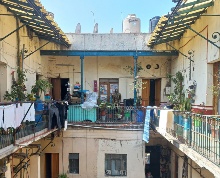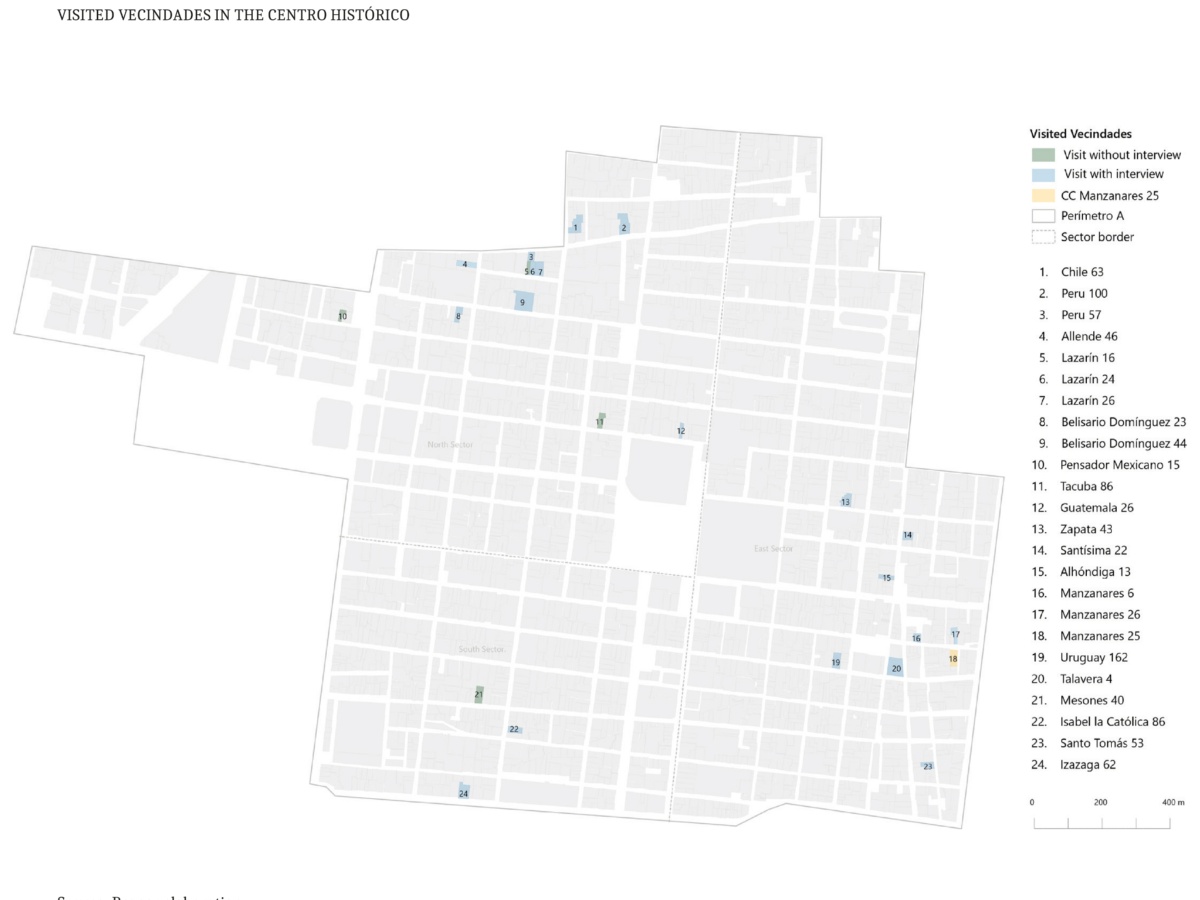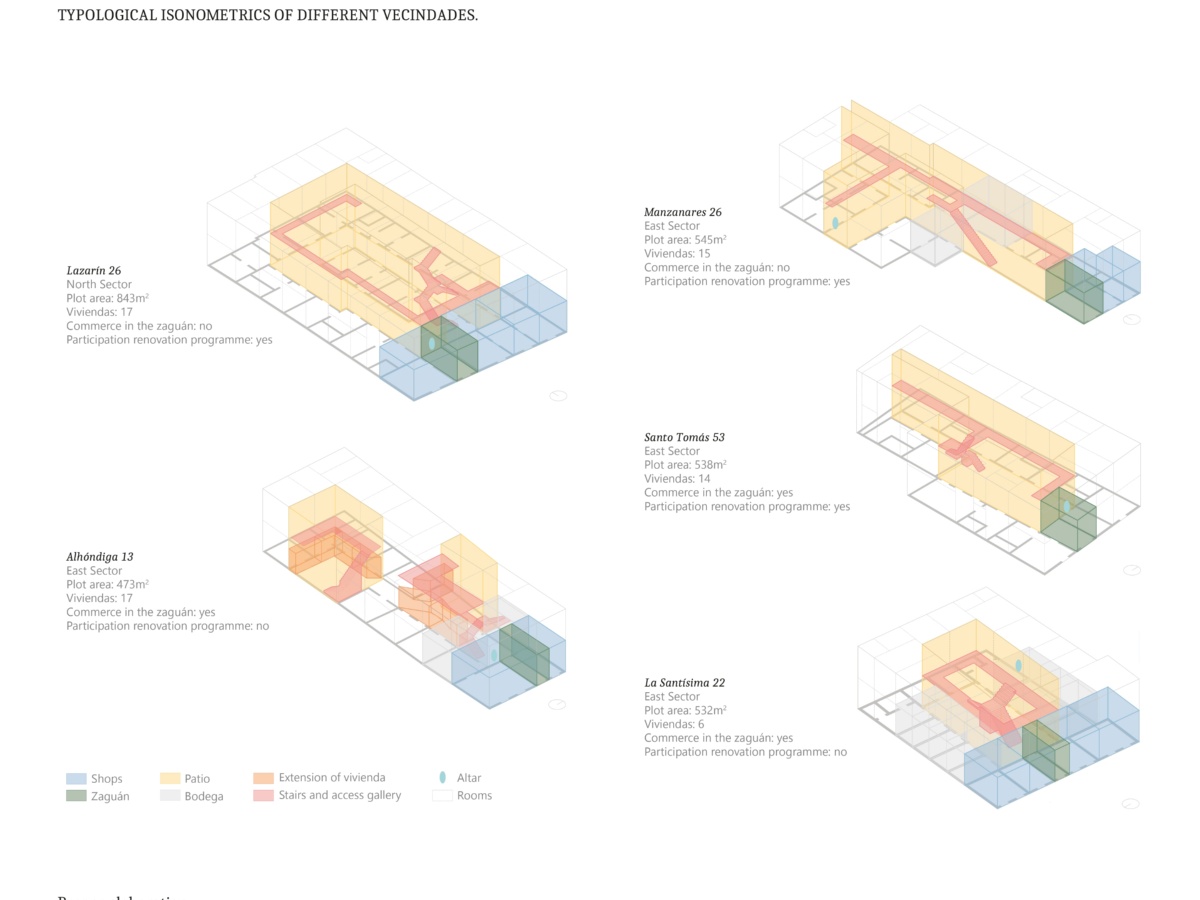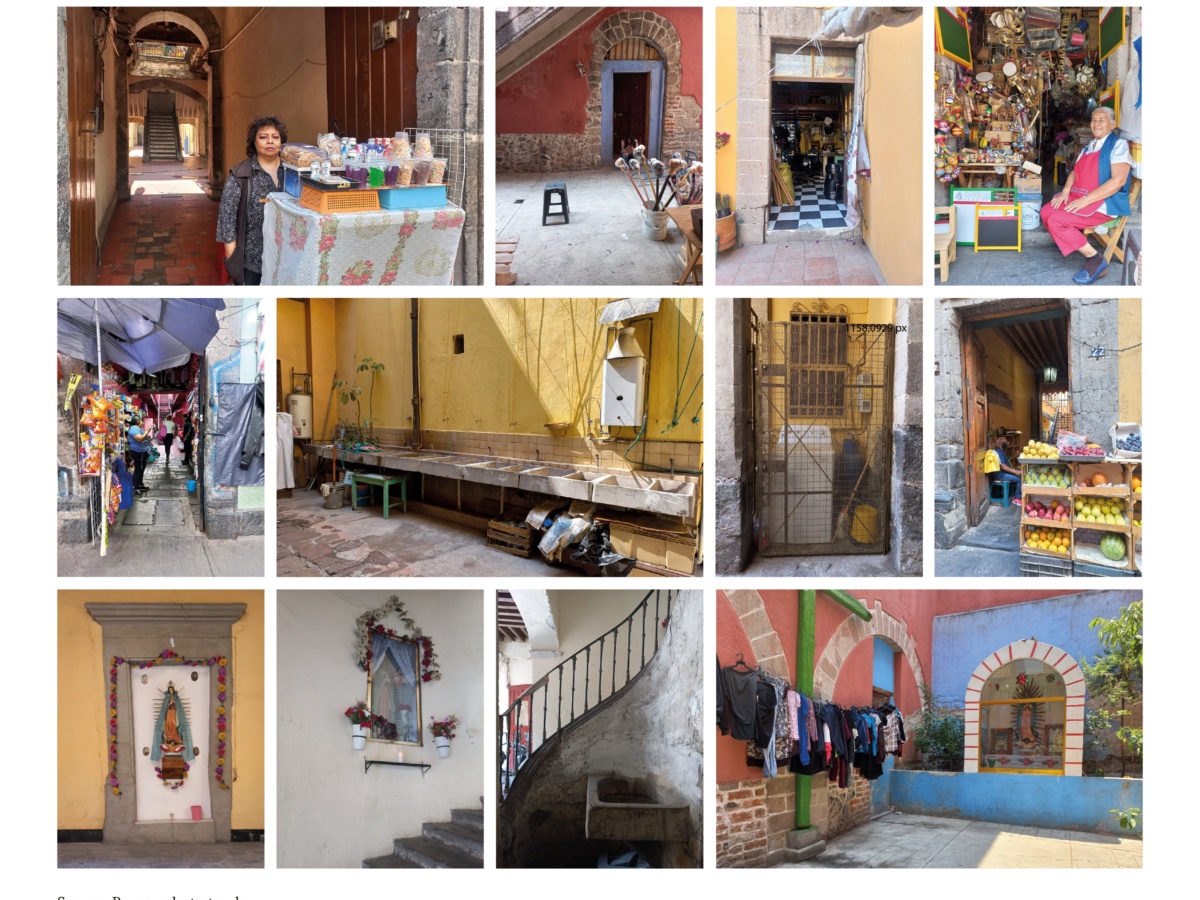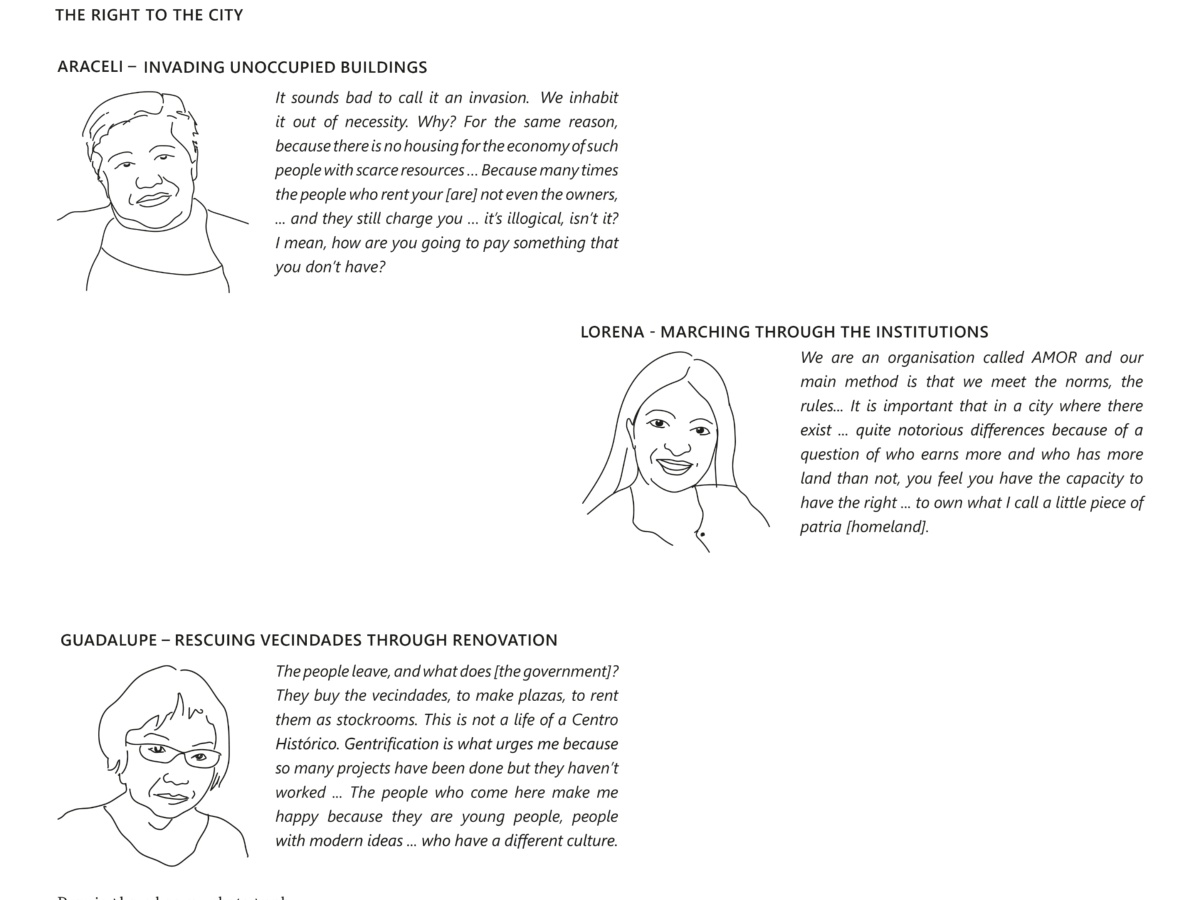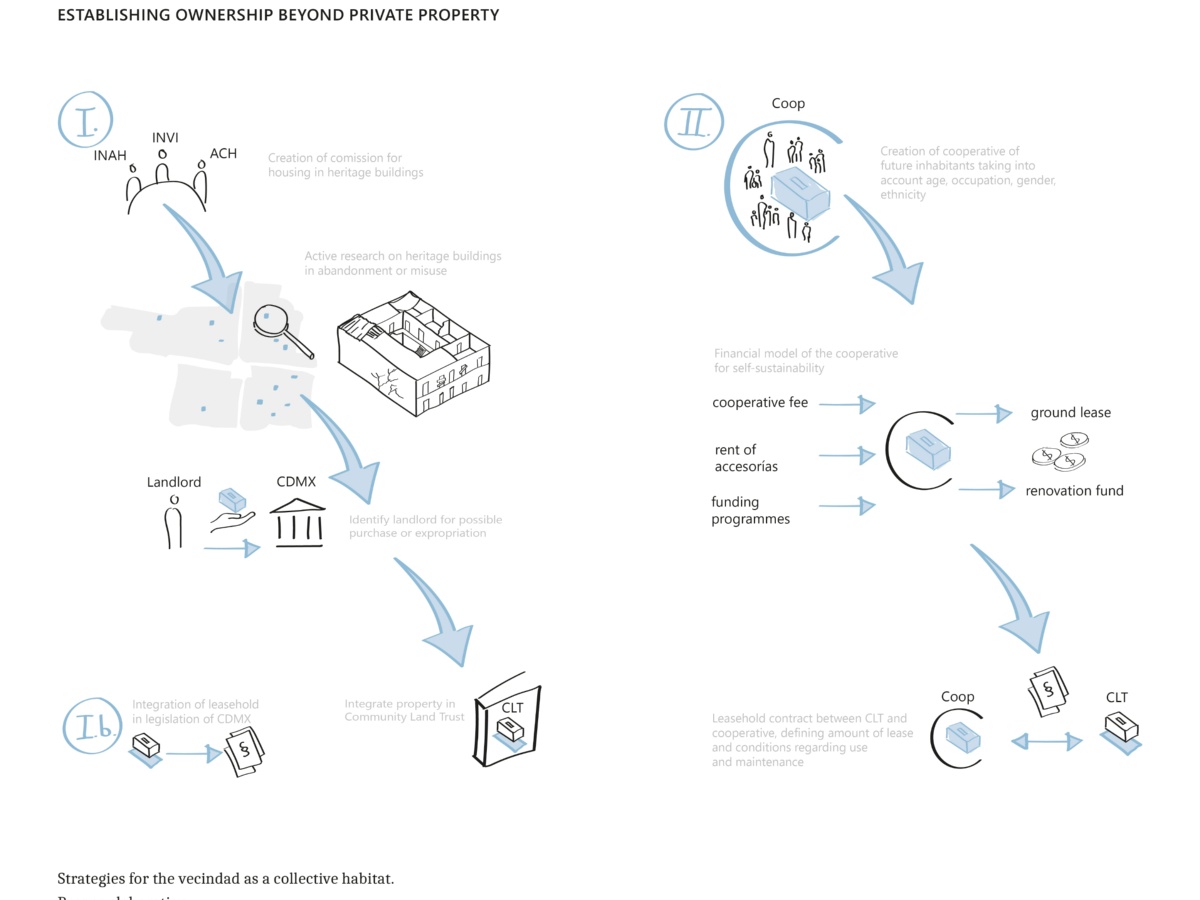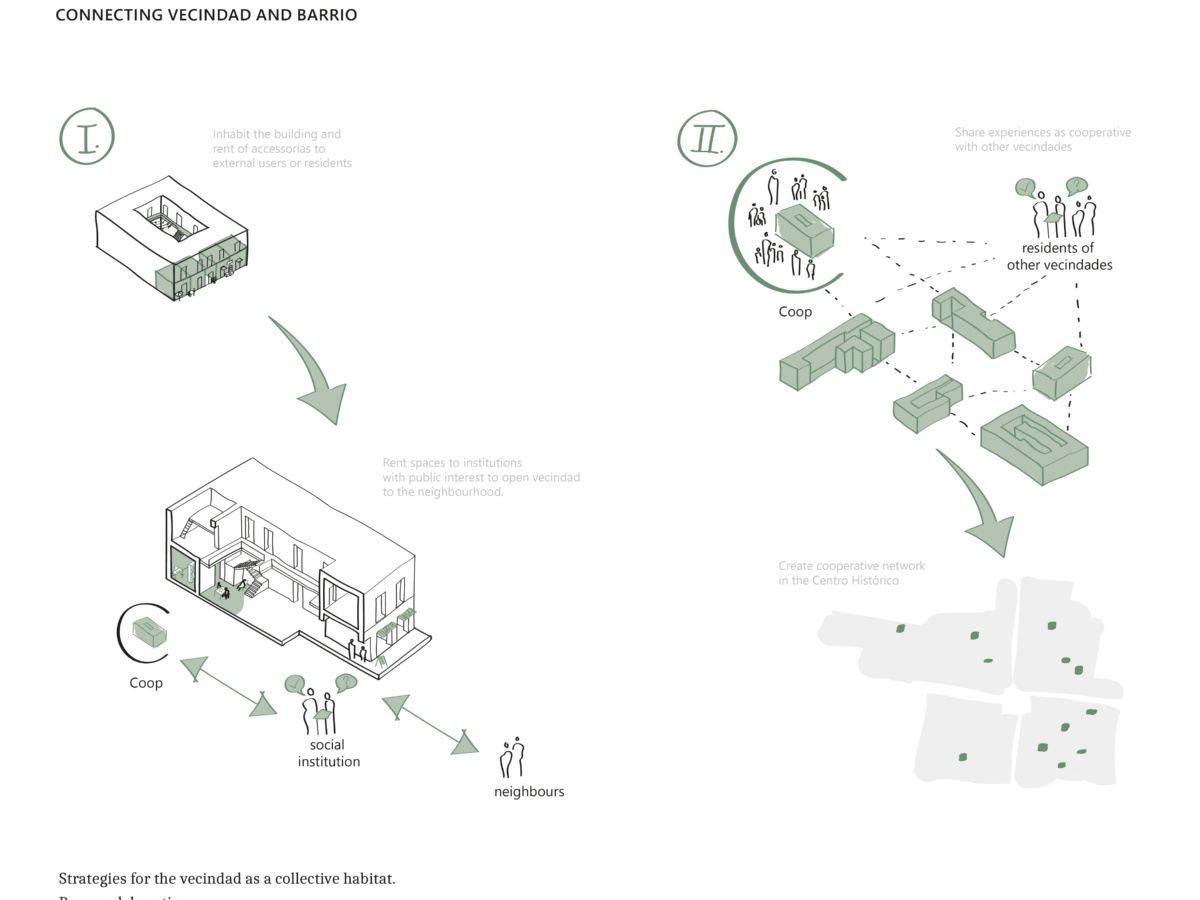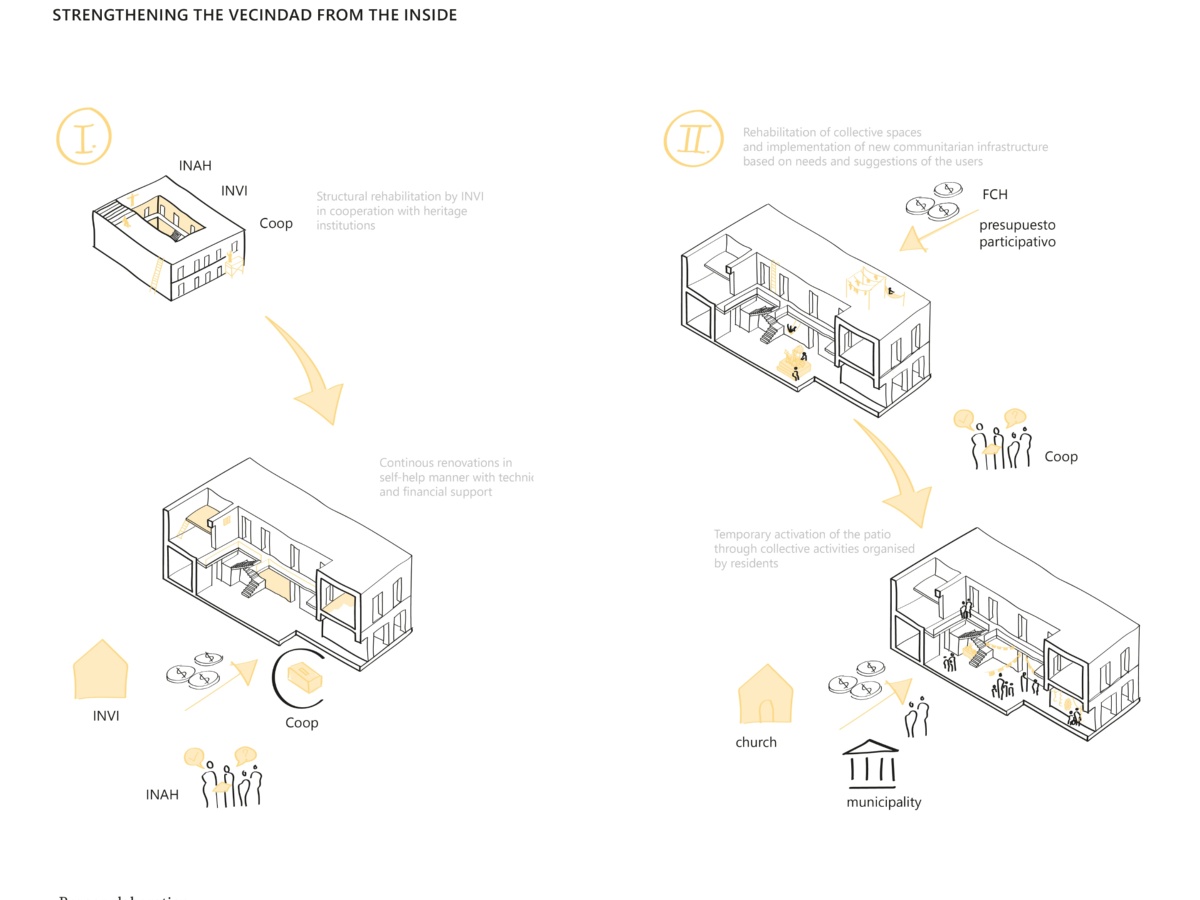This research work deals with the preservation and transformation of the built heritage and explores the question of how the interests of the current residents can be protected in the context of neoliberal urban planning. It focuses on collective housing in the traditional typology of the vecindad which can be found in the historic centre of Mexico City. This form of cohabitation around a shared patio, often inhabited by working class people, has developed through the occupation and conversion of abandoned colonial houses. Today, the increasing tertiarization and turistification of the Centro Histórico threatens the neighbourhood as habitat for the sector popular and the vecindad as an affordable housing option. The thesis tries to give an insight on the historic development and current living conditions in the vecindad and the Centro. It analyses current strategies of the local government to “rescue” the area, as well as citizen movements claiming their Right to the City. The literature review is complemented by qualitative data collected in workshops and interviews with inhabitants. By identifying the main transformation processes, it tries to formulate principles that need to be addressed for a future of collective housing. This aims to rethink the vecindad as a collective habitat which at the same time ensures the Right to Housing for the sector popular and preserves the material and immaterial heritage.
The thesis was supervised by Prof. Dr. Astrid Ley (Universität Stuttgart) and Prof. Dr. Víctor Delgadillo, (Universidad Nacional Autónoma de México)


